'Row, row, row your boat ...'
The E.S. Hughes Club
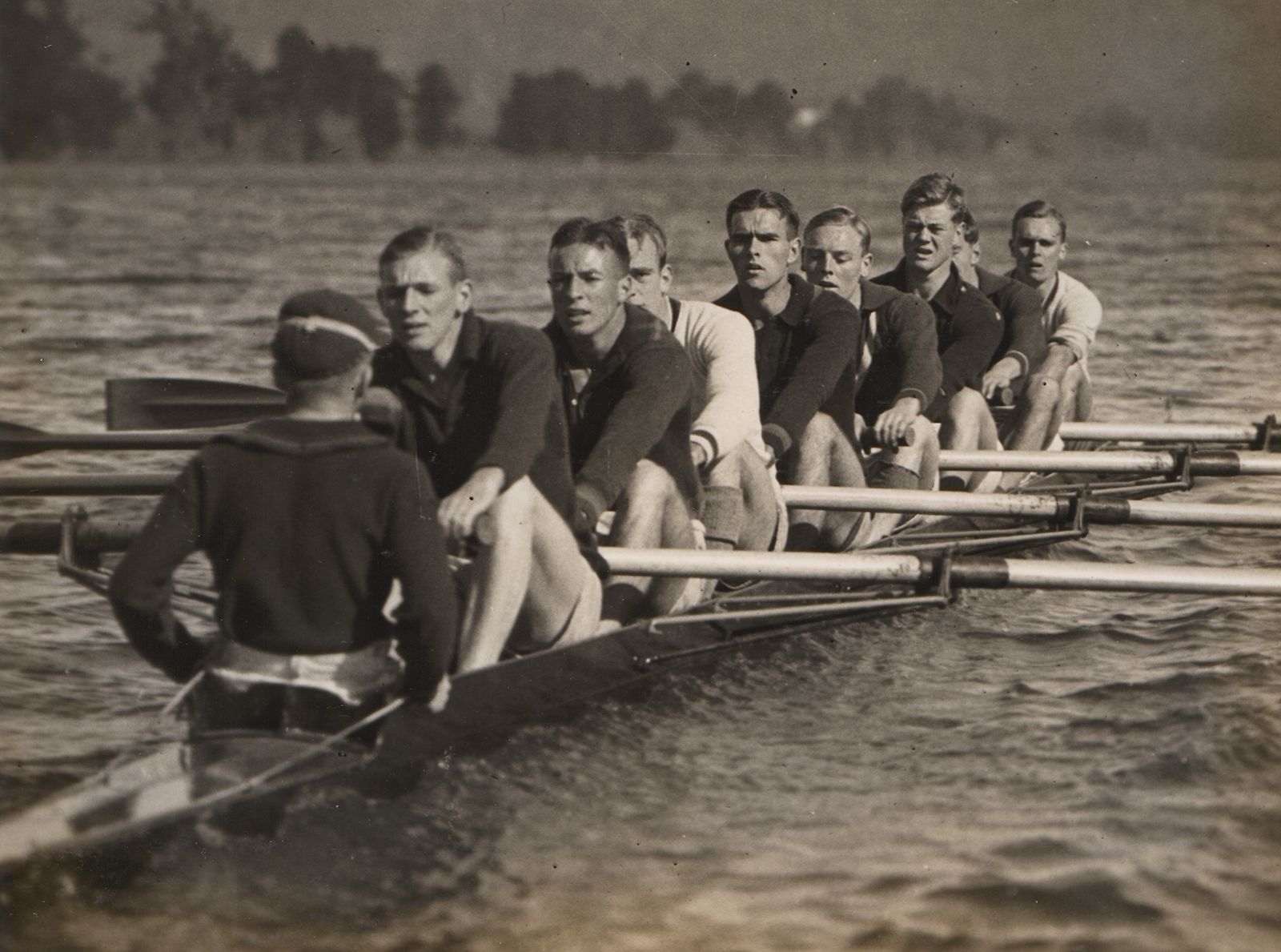
On the social side there was a dinner for old oarsmen in Hall on the Monday before shums to launch the 'E.S. Hughes Club'. We hope this will be an annual event.
It reads almost like a Gospel parable. The young man who gave up a fortune to pursue a life of ministry.
Born in Cobram, Victoria, in 1860, Ernest Selwyn Hughes was educated first at All Saints Grammar School in St Kilda, then Melbourne Grammar School before securing an appointment with the Royal Mint. For seven years, coin looked set to be Hughes' path.
That changed in 1883.
Under the influence of the Bishop of Melbourne, James Moorhouse - and his mother - Hughes resigned to commence studies in ministry at Trinity College. He won the Henty Scholarship and came into residence that same year.
At Trinity, Hughes excelled. An outstanding athlete and sportsman, he stroked in both the 1884 and 1885 victorious college rowing crews against Ormond, the latter being Trinity's fifth consecutive win against their adversary. The crew's coach was none other than Frederic Hughes, a member of the Melbourne Rowing Club, fellow alumnus of Melbourne Grammar - and Ernest's older brother.
The College Warden, Alexander Leeper, would later write that the 'first six boat races were such hollow victories for Trinity that we became very arrogant. ... Our pride was properly reduced in the year 1887 when Trinity suffered a bad defeat, though she had a fine crew, stroked by E.S. (now Canon) Hughes.'
Hughes remained keenly attached to his alma mater, and their endeavours on the water.
In 1920, he presented a newly built racing 'eight' back to Trinity, christened the Fleur de Lys in April in advance of the intercollegiate rowing regatta the following month. The student magazine of the same name offered a brief account, writing:
On 19th April an interesting ceremony was conducted at the boatsheds when the new racing eight presented to the College by Canon E.S. Hughes was christened by his wife.
Henry Hawkins (TC 1913) was Senior Student that year, and extended the thanks of the College crew to Isabell Hughes by presenting her with a silver hammer, engraved with the College coat of arms and the date.
It wasn't just rowing that Hughes showed a natural talent and keen interest towards however, but cricket as well. In later years he helped form the Board of Control for Australian cricket, and took an active part in the 'bodyline controversy' during the 1932-33 Ashes Test series.
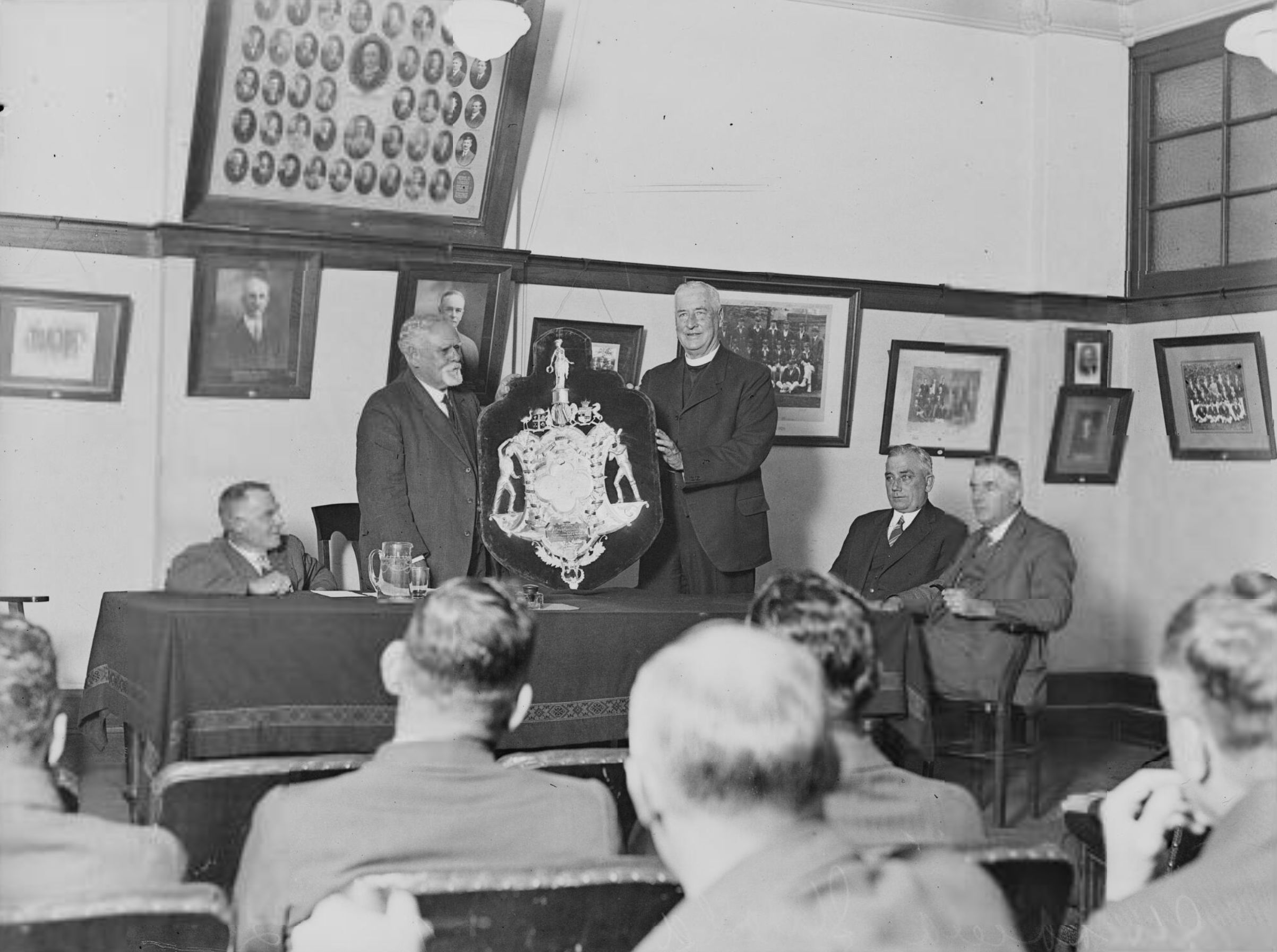
The Sheffield Shield being handed over to New South Wales, 4 May 1932, Canon Hughes stands on the right. National Library of Australia.
The Sheffield Shield being handed over to New South Wales, 4 May 1932, Canon Hughes stands on the right. National Library of Australia.
There was little surprise then that it was Hughes who officiated at Australian cricket great Don Bradman's wedding to Jessie Menzies in 1932. The two had become close friends a few years earlier, through their shared passion for the sport.
As the Herald would write:
'Don Bradman and Canon Hughes are great friends. Theirs is a cricket friendship.'
Graduating and ordained in 1887, Hughes commenced his ministry the following year. During these years, he kept up his active interest in sports, playing with St Kilda football club in 1890 before transferring to Essendon where he played - as an ordained priest, no less - in its four premiership sides from 1891 to 1894.
He accepted a curacy at St Peter's, Eastern Hill, in 1894, which would mark the beginning of his 32-year-involvement with the parish before ill health forced him to resign in May 1926.
In his later years, Hughes enjoyed sharing his time between his farm at Aspendale, where he was a keen rosarian, and his city residence in East Melbourne, renowned for its rich library.
Ernest Hughes died on 16 June 1942, at the age of 82. Trinity's Fleur de Lys magazine honoured him, saying,
'...his rare combination of geniality and devotion endeared him to many throughout the community.'
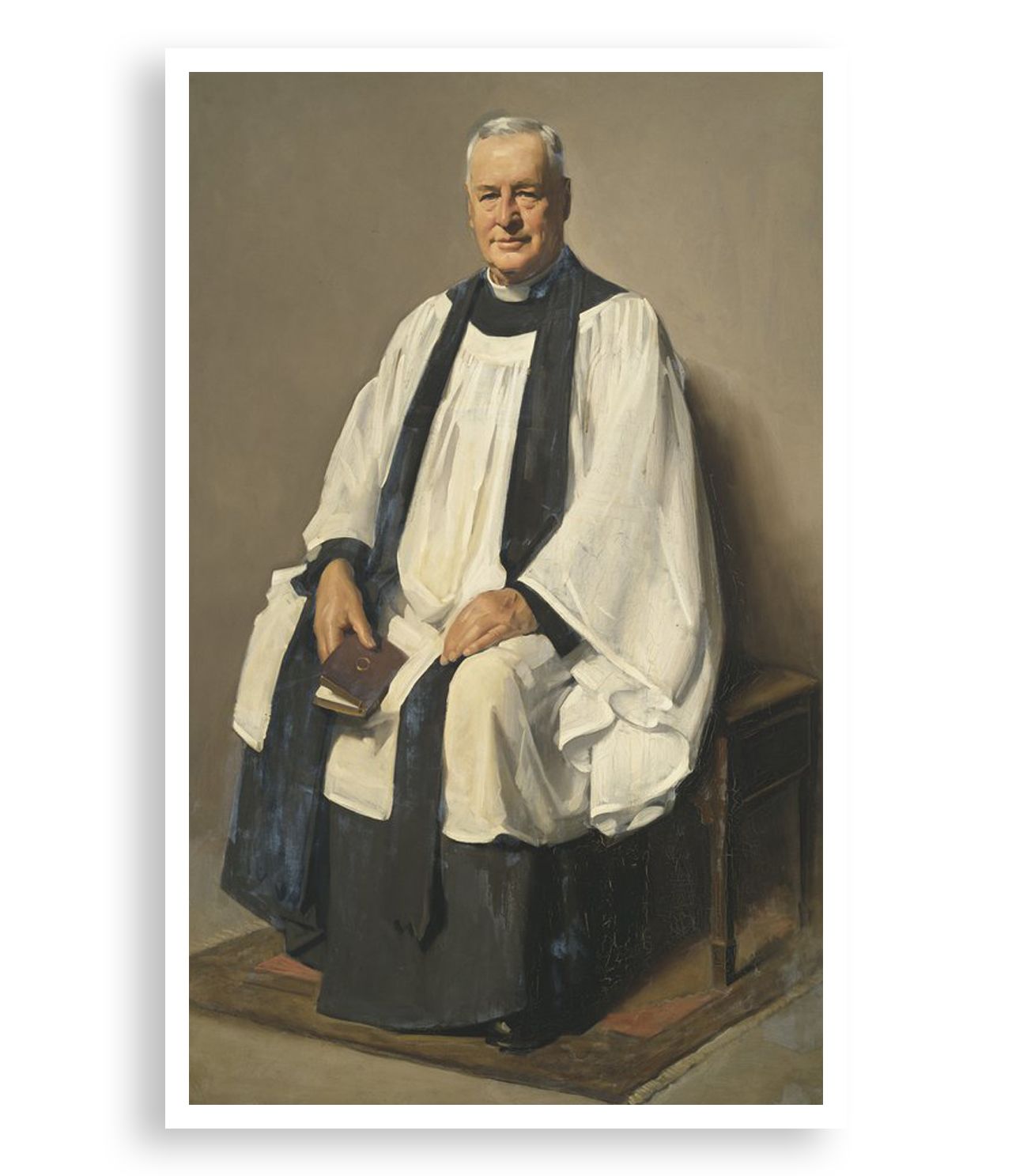
Ernest Buckmaster, 'Revd Canon E.S. Hughes', 1931, oil on canvas. State Library of Victoria, H15966
Ernest Buckmaster, 'Revd Canon E.S. Hughes', 1931, oil on canvas. State Library of Victoria, H15966
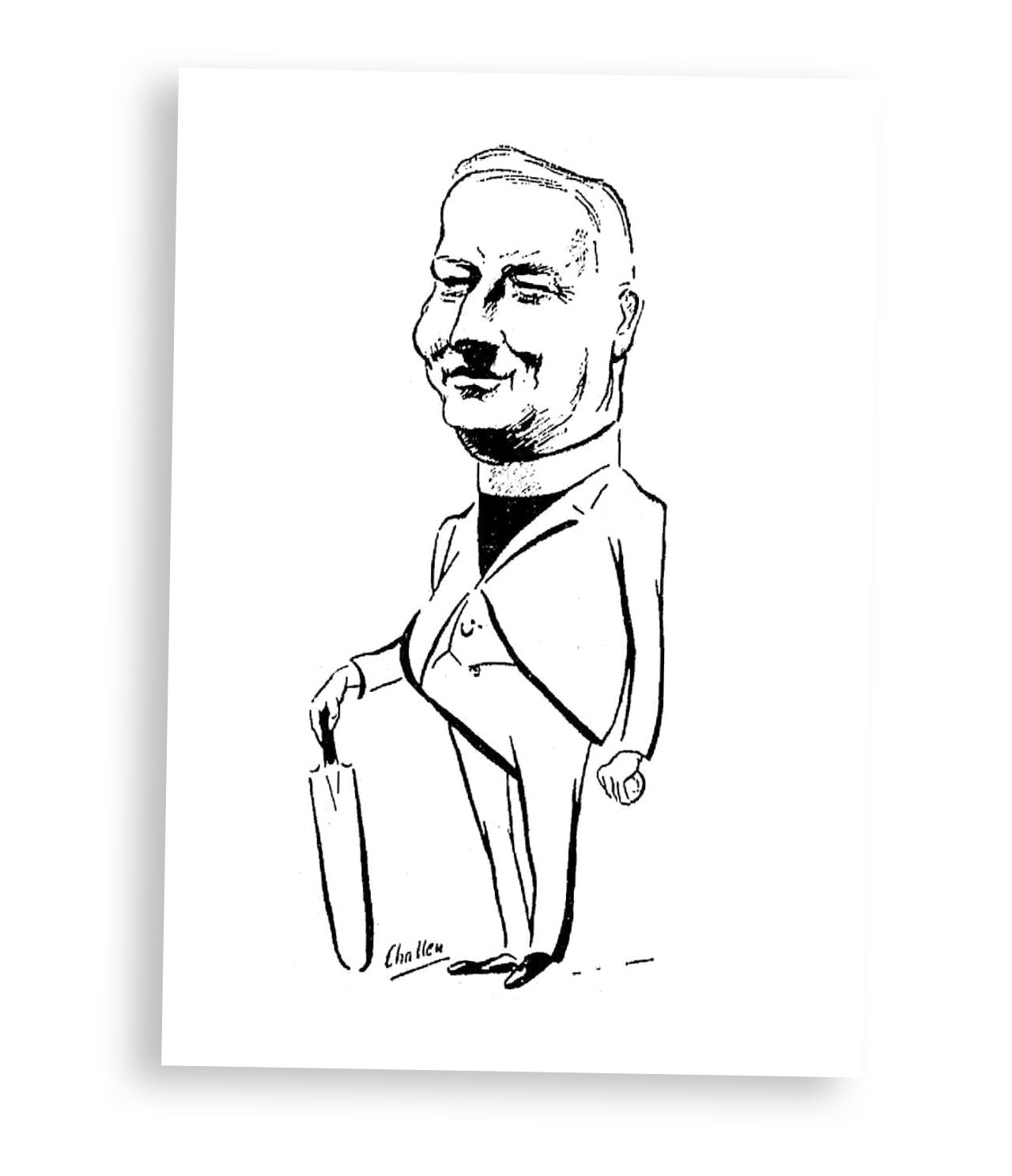
Revd Canon E.S. Hughes, Table Talk, 19 November 1936
Revd Canon E.S. Hughes, Table Talk, 19 November 1936
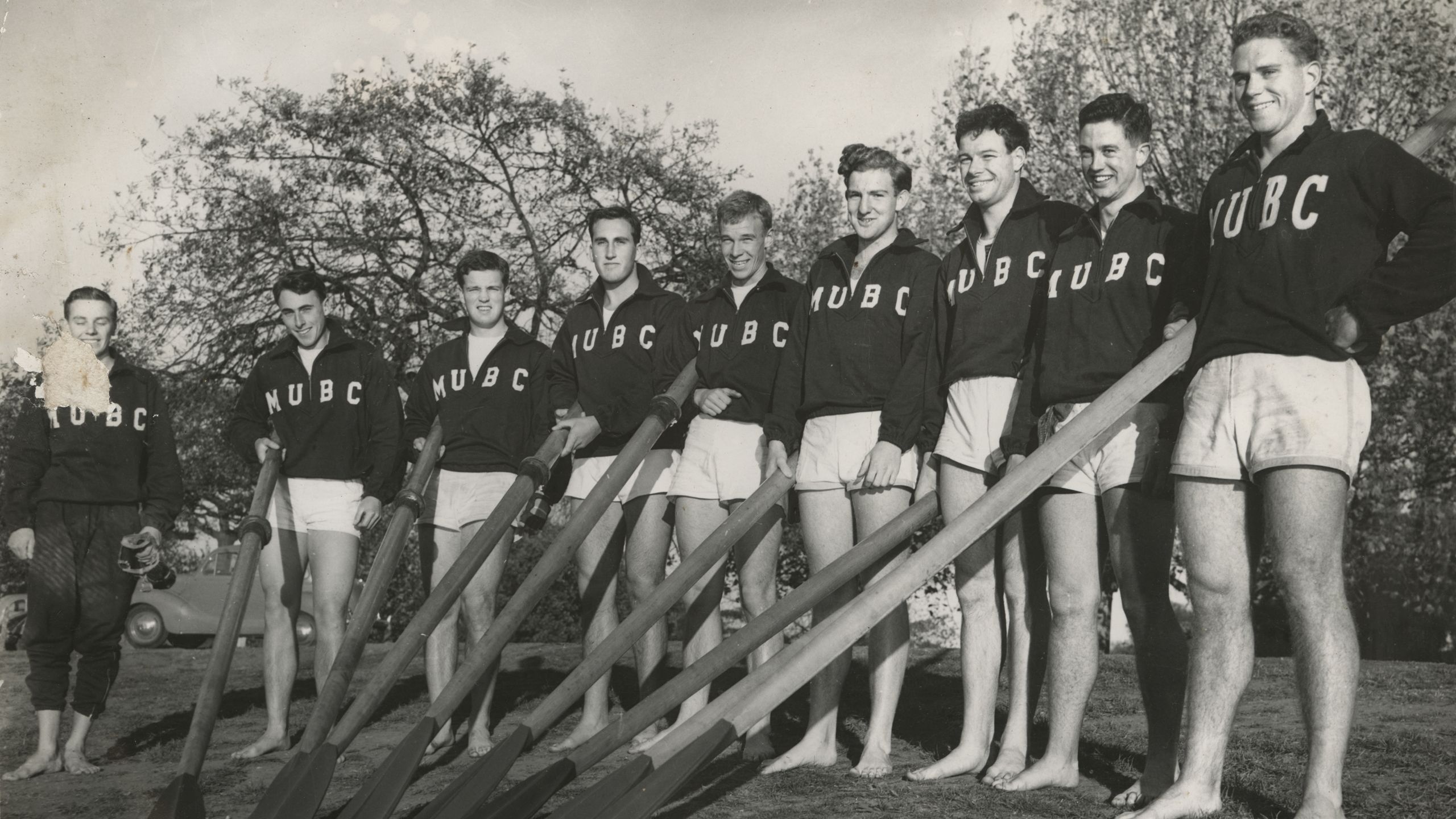
'For all College oarsmen ... ' - and women!
Some 36 years after Hughes' passing, at the tail-end of the 1970s, a new club was inaugurated at Trinity College. The E.S. Hughes Club.
On 20 March 1978, the first club dinner was held in the College Dining Hall - shortly before that 'other' College rowing event, 'Shums'.
'Yes, it was my idea - I take the blame'.
Senior Student in 1978, Bill Gillies (TC 1974) was the driving force behind the club's establishment, ably assisted by two older College oarsmen, William Balcombe Griffiths (TC 1928) and 'Taffy' Jones (TC 1957). Balcombe Griffiths would become the club's inaugural president.
Canon Hughes was a fond memory for Balcombe Griffiths, who recalled the sports-loving clergyman inviting the Trinity College crew around to St Peter's, Eastern Hill, for social gatherings. His continued interest throughout his life and support of all matters Trinity rowing was held in high regard.
Such had been the success of the inaugural E.S. Hughes Club dinner in the Dining Hall that the pattern was repeated annually into the mid-1980s. 'The Dinner was great fun', one attendee recalls. An eminent rower would be invited as guest speaker, and past crews would return year on year to celebrate college rowing.
In 1980, the third annual club dinner followed the victorious win of the men's 1st VIII, in which Senior Student Mike Fullerton coxed the winning crew. He organised a special victory dinner to celebrate and, between those attending and 'some keen supporters from earlier days', enough funds were raised to purchase a new racing eight. It was named the 'Arthur Godfrey', after Arthur (TC 1966), oarsman from the 1969 winning crew who subsequently coached the crew for several years.
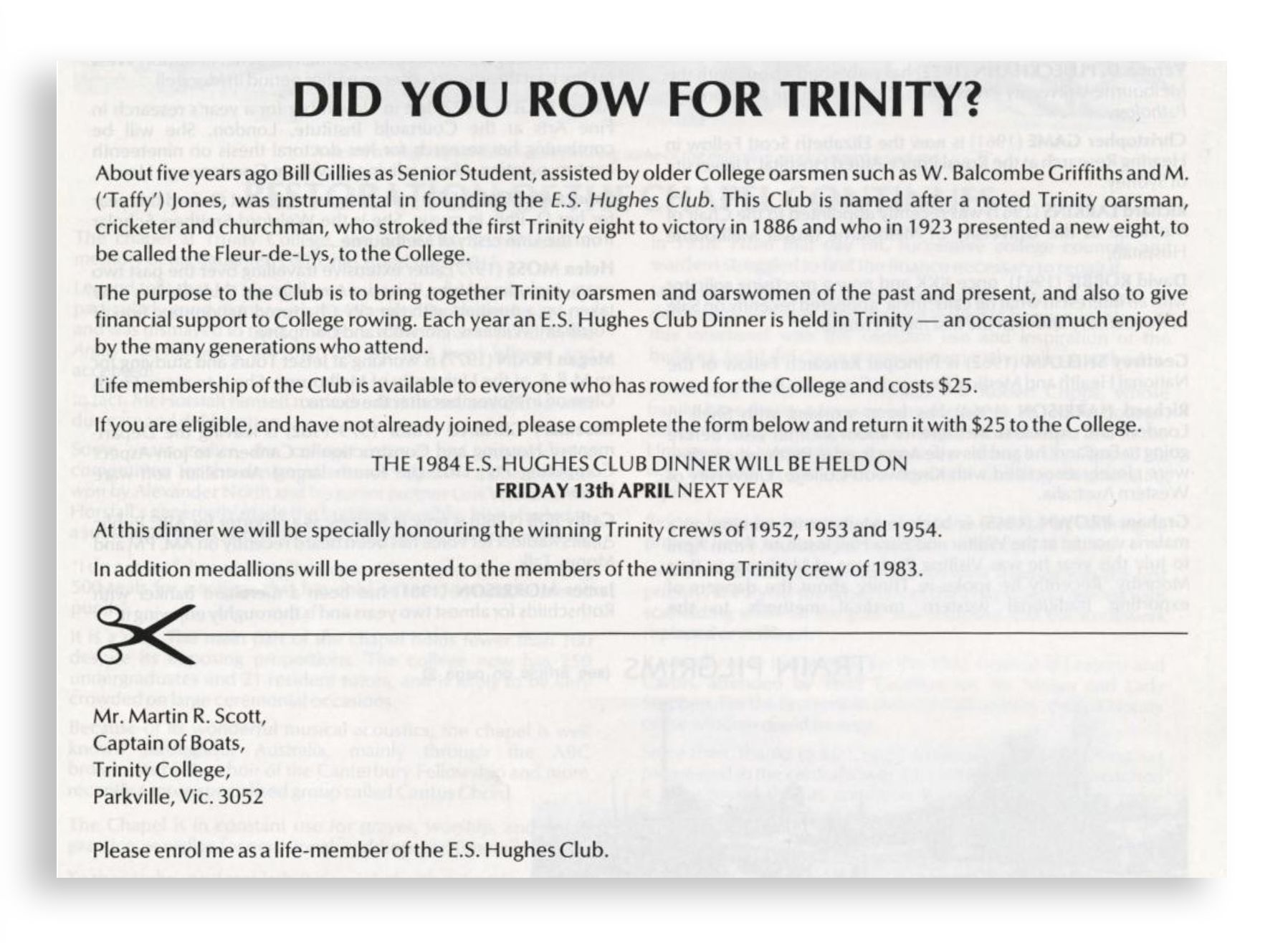
Join the Club! - Trinity College Newsletter, December 1983
Join the Club! - Trinity College Newsletter, December 1983
However, from the mid-1980s, the regular activities of the club lapsed. Gillies had moved interstate with his legal career and perhaps without his guiding influence, the club seemed to have slipped into a period of hibernation.
Were there other factors involved?
It was sometimes said, in hushed tones, that rowing dinners could at times be 'lively' affairs. As one alum recounts, 'Dr Burge was always very wary of the dinner because rowers were notoriously badly behaved, in particular the incident in 1974 where:
... there was a food fight in the Hall and apparently cauliflower landed upon the bishop's purple who was then seen to launch potatoes into the general mass of the Hall.'
In 1997, after a decade-long stagnation, fourth year law student and a former 'Captain of Boats', Tom Woodruff (TC 1993) began to compile a complete history of the boat club (E.S. Hughes Club) in the Billiards Room.
The Warden has enthusiastically supported this project, which is based on a sequential collection of premiership crew photos and oars. Included in the permanent display will be the bow of "The Janet".'
Photos of previous victorious crews were sought out and sent in by past crew members; digitised, framed, and hung in the Billiards Room. Crew weights were gathered together with the help of Bill Hare (TC 1942), who had rowed in the dead heat match of 1946 against Ormond, and Bruce Nelson (TC 1945).
The Billiards Room as it presents today, full of oars, photos and rowing history, is testament to Tom's keen interest in ensuring the club's legacy continues.
Woodruff's active engagement with the club's history would be illustrative of his commitment to the sport. For almost 18 years now, he has been the Director of Rowing at Melbourne's Scotch College.
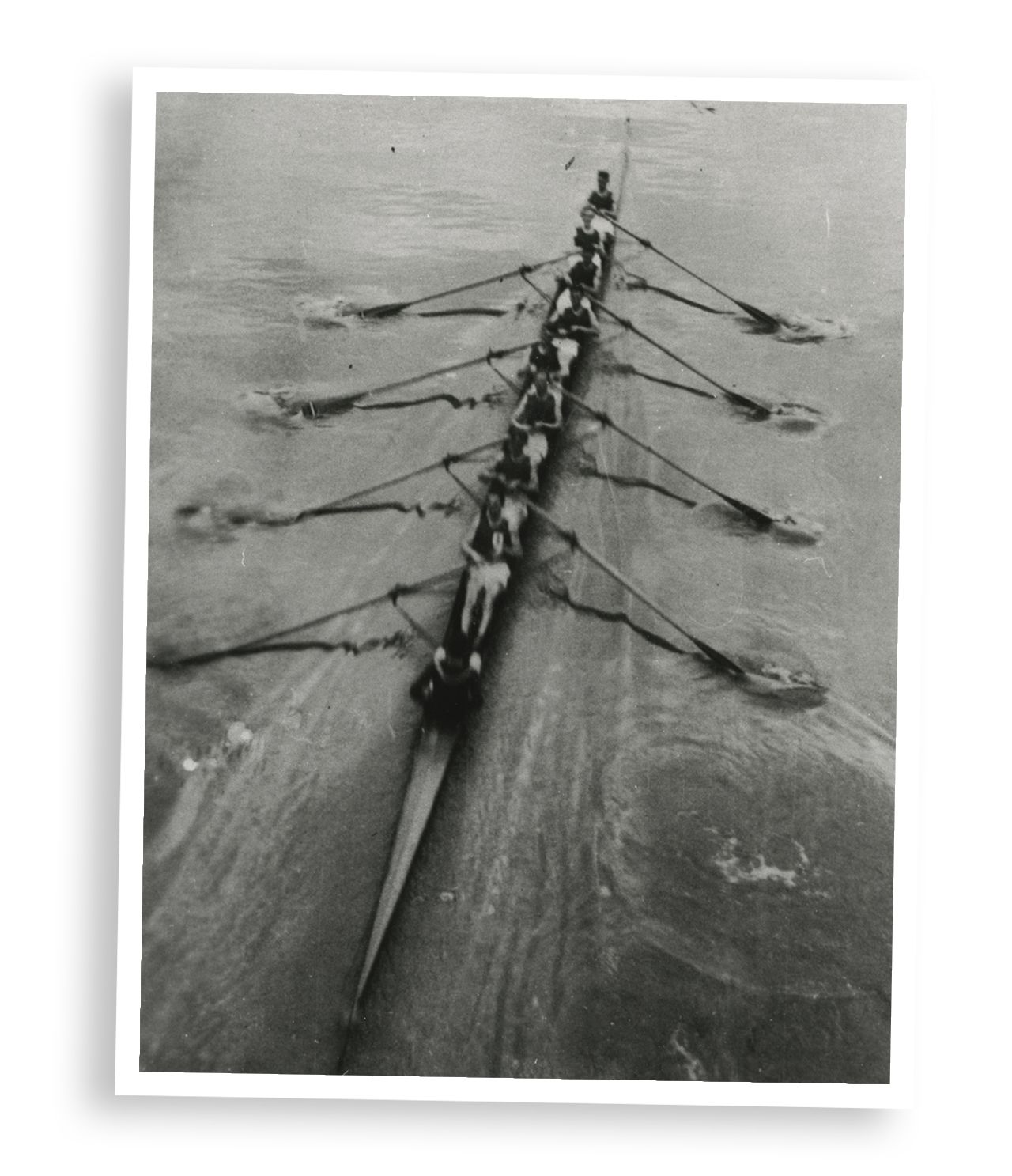
The Trinity crew on the water, possibly in the newly christened 'Fleur de Lys', 1920. Trinity College Archives, MM 000782
The Trinity crew on the water, possibly in the newly christened 'Fleur de Lys', 1920. Trinity College Archives, MM 000782
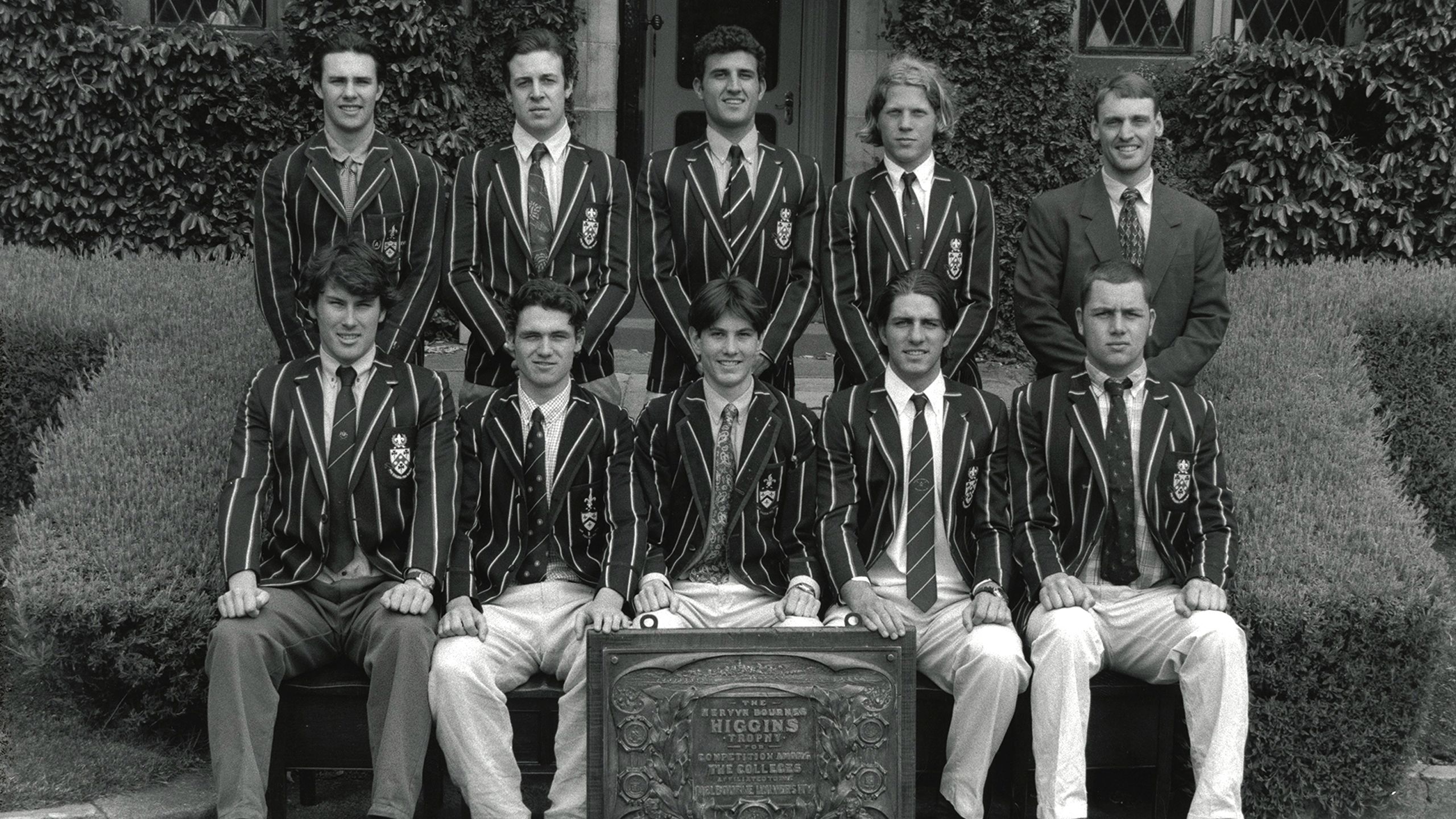
The victorious men's 1st VIII rowing crew posing with the Mervyn Bourne Higgins trophy, 1996. Tom Woodruff is seated, second from left. Trinity College Archives, MM 003220
The victorious men's 1st VIII rowing crew posing with the Mervyn Bourne Higgins trophy, 1996. Tom Woodruff is seated, second from left. Trinity College Archives, MM 003220
The E.S. Hughes Club lives!
Which brings us to the present time, following a further period of dormancy. Who among current or former crews will stride forth to once again revive the club that represents the oldest of the College's sporting endeavours?
One such is former Captain of Boats, Martin Scott! Together with fellow former oarsmen, the 'crew' is extending a warm welcome to all past oarsmen and women of the college to join them for an event in 2023.
We want to hear your ideas for a great event! Email us at: alumni@trinity.unimelb.edu.au
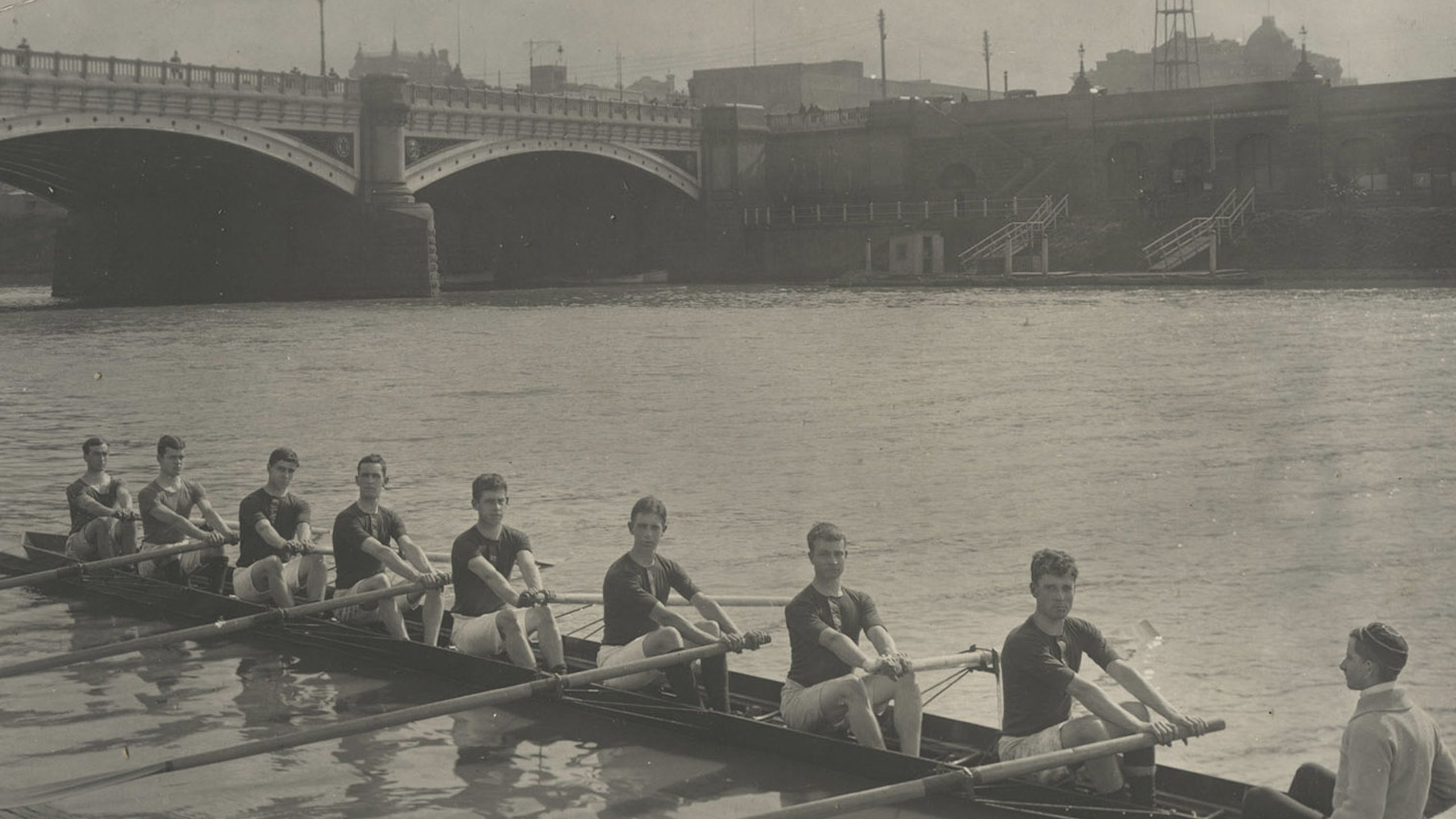
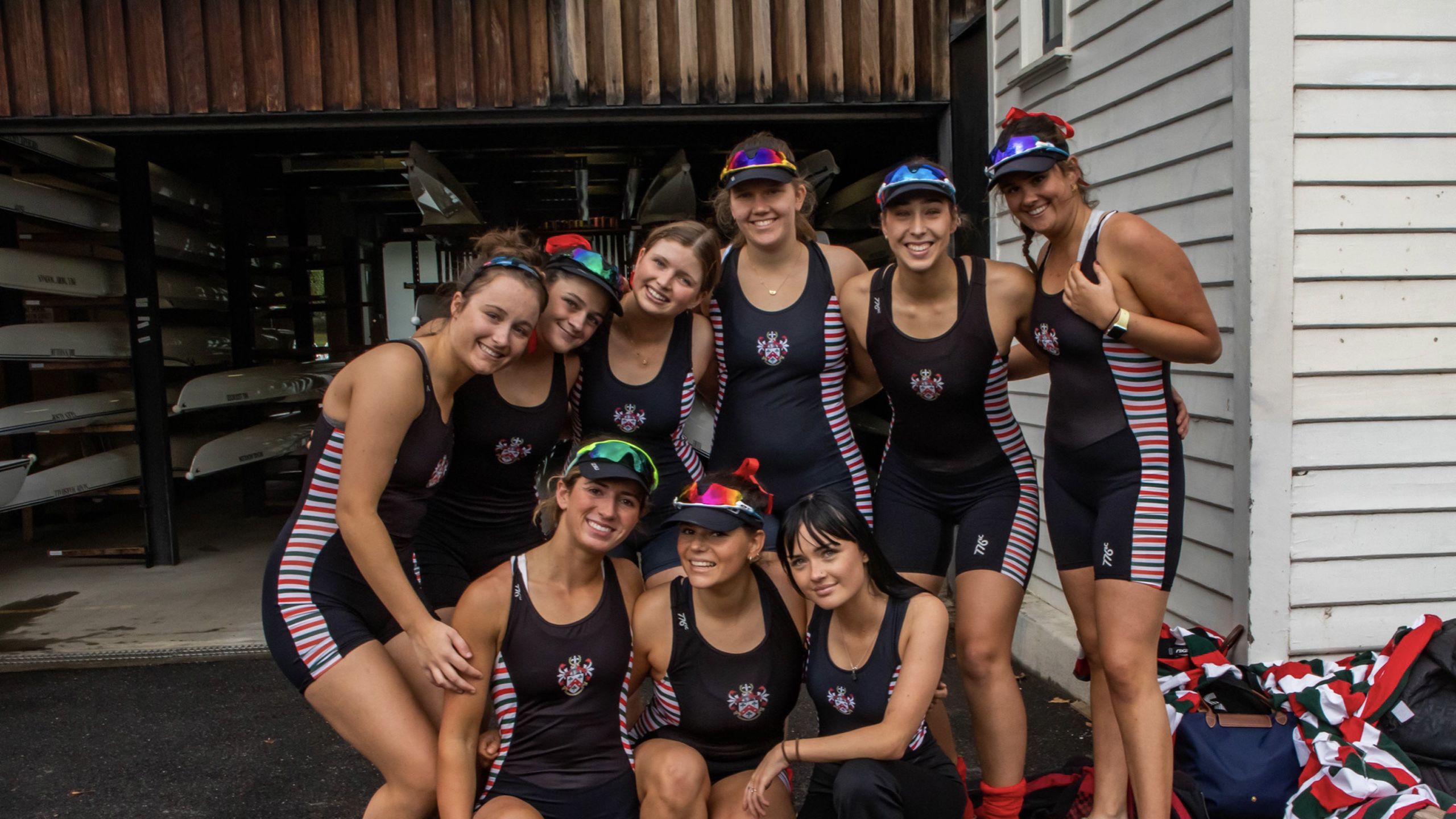

Dr Ben Thomas, Rusden Curator, Cultural Collections
curator@trinity.unimelb.edu.au





